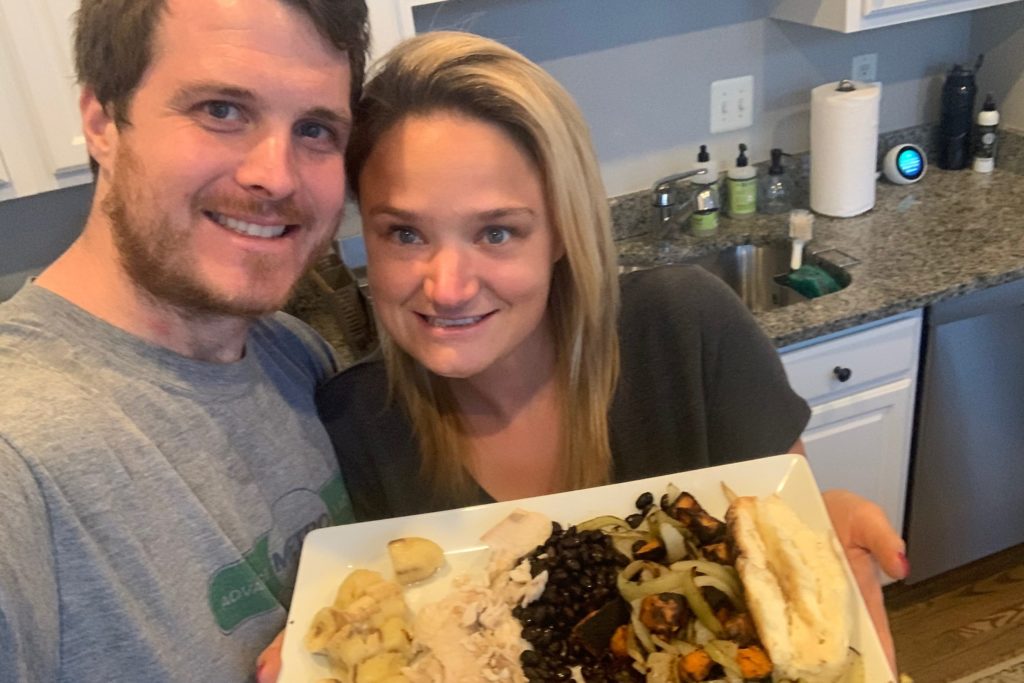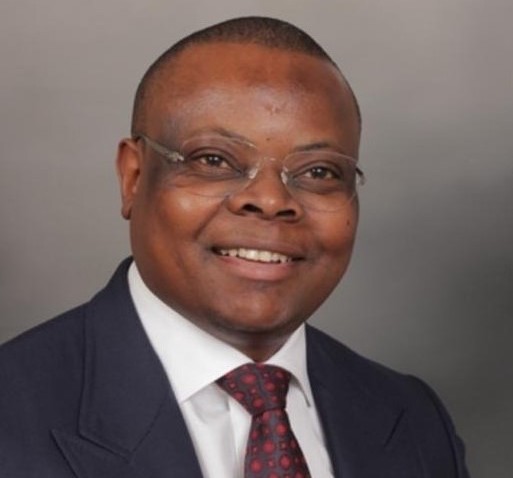
Since 2008, EB5 Capital’s team has had the privilege to frequently interact with a diverse and accomplished set of investors from over 65 countries who have decided to make the United States their new home. Every so often, through our Investor Spotlight series, we enjoy taking the opportunity to feature some of our past clients and share their immigration experiences with you. Each of these investors has graciously allowed us to share their story.
Earlier this year, before the emergence of COVID-19, our team met with Mr. José Pinto and his beautiful family from Angola. A self-made and resilient entrepreneur, José invested in our JF23 project, a Virgin Hotel in Nashville, Tennessee; this month, he received his I-526 approval. When José was barely a teenager, he made the courageous decision to flee his hometown and seek greater opportunities in Angola’s capital, Luanda.
The 27-year Angolan Civil War had a significant impact on his life, but José prevailed and now runs his global business across three continents – Africa, Europe, and North America. José represents major oil and gas companies and is a real estate investor. His family is currently located in Boston, Massachusetts, and in the suburbs of Washington, DC.
Below are some of the questions we asked José and during our time together a few months ago:
What was it like growing up in Angola and what impact did the Angolan Civil War have on your life?
I grew up in a town called Lobito, which belongs to Angola’s Benguela province. Like most people at that time, because of the war, I had a humble upbringing. I lived with my parents until the age of 11 and, up until then, I had a normal life. I went to school and played with my friends in my spare time. I also often helped my parents with chores at home.
My earliest memory of the Angolan Civil War was when I was 11-years-old. I fled my hometown in Lobito, stopped studying, and left my parents and my brothers behind. I managed to reach the capital, Luanda, and started selling cigarettes and soft drinks on the streets. Those were the hardest times of my life. I missed my family very much. My world was flipped upside down!
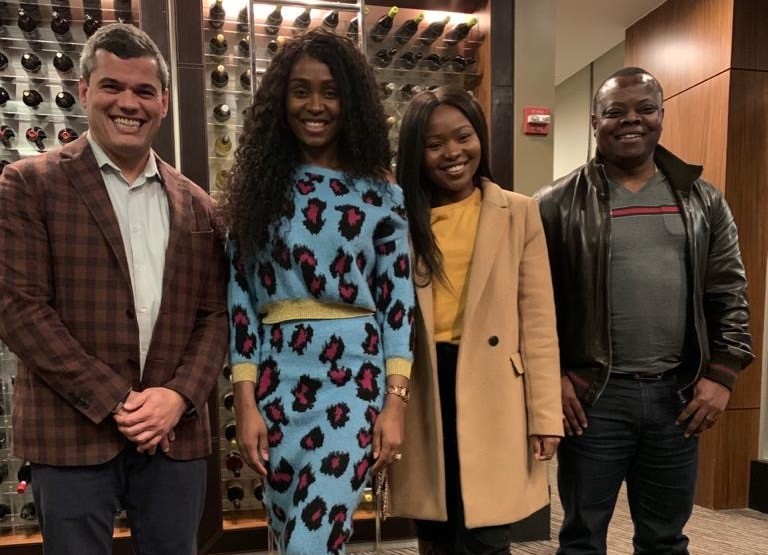
Angola is Africa’s second largest crude oil producer after Nigeria. How did you become involved in the oil and gas business? Where do you currently work, and do you plan to continue this career path in the United States?
I started working in the oil and gas business when my company, Grupo José Pinto, began branching out into ventures outside of real estate. In 2003, when we started investing in the US, I developed some good connections with companies, such as Ingersoll Rand. They provided us with compressed air and lifting equipment, heavy duty cranes, and power tools. I also developed a relationship with MSA Safety where they provided us with protection equipment; we were also able to structure a deal and be the official representative in Angola. In addition, we built a fleet of trucks to transport various equipment between Luanda, Soyo, and Cabinda, where the offshore platforms are based. Finally, we went on to offer young Angolans the opportunity to study in South Africa and gain work experience on the oil platforms as engineers and technicians.
We still currently work in Luanda, and who knows what the future has in store for us. Once we move to the US, we have many options and we might branch out into different ventures having more to do with real estate.
During the coronavirus lock-down, oil prices have fallen to their lowest levels in over 30 years. Do you think the coronavirus outbreak is going to reshape the oil industry and, if so, how?
Yes. During the coronavirus lock-down, oil prices have fallen to record lows. This immediately affects our business in the near term. Many companies will have to make cuts and find ways to survive, but this is not new. These pandemics come and go. We can see in history that 100 years ago the world went through similar times with the influenza pandemic straight after World War I in 1918 until 1920. Despite the many losses worldwide, we managed to come through and restart everything. So, I have hope in our healthcare system, doctors, and scientists who have tools and technology to find solutions a lot quicker now than before and to restore normality to mankind.
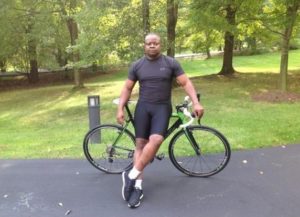
We understand you are a real estate investor. How do you compare your real estate investments in Boston, Dubai, Nashville, and Washington, DC? What are your future plans for these properties?
All investments made in the US have been good investments as the market is dynamic. Whether they are in Boston, Nashville, or in Washington, DC, all of them have pretty much given me good returns and have increased in value. I have invested around $7 million (USD) so far, and I plan to continue to invest in US real estate. In Dubai, I have not been so lucky with my investments as things are a lot slower there and the return on investments takes longer. For instance, I bought a penthouse in a famous building in Dubai that is being explored by a hotel group, but as it seems it will take forever to see the investment returned to us. I would like to sell this property. In Angola, we have invested over $44 million (USD) in property and it is working out well for us. There is potential for further growth!
As a successful businessman with options to emigrate to many different countries, why did you choose to resettle in the United States, and how widely is your vision shared among friends and family?
As I mentioned before, I first visited the United States on a business trip in 2003 to invest in real estate. The first place I set foot in the US was Washington, DC. I fell in love with the city straight away and the rest is history.
My relatives and friends are extremely happy for the way things worked out for us. Many hope to follow our footsteps and do the same. We are happy to assist them in achieving their goals.
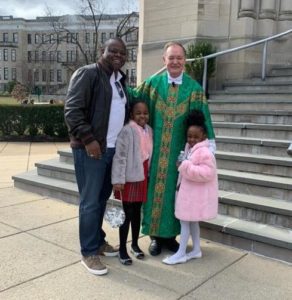
How has the transition process been for you, your wife, and children? What major challenges have you faced and how did you overcome some of them?
The transition process is never easy, but we all managed to adapt to new things, like learning a new language and culture. Changing our eating habits was more of a challenge for our older kids, but not so much for the children as they soak up everything like sponges. We had to work hard to study and learn new things. Overall, we are all impressed by the schooling system, the laws that the country stands for, the beauty of the American landscapes, and the variety of things to do and see. It’s all very wonderful!
How vibrant is the Angolan community in the Washington, DC area? Is it growing and can you elaborate on the intersections with the Portuguese community?
There is a vibrant community because Angolans are naturally vibrant people. We have the embassy and people from around the world travel to DC to meet and mingle together in certain restaurants and places. As for the intersections with the Portuguese, we have been in touch with them for over 500 years, so we share many cultural things, such as food, music, and language. Language always makes it easier for us to interact and get along with each other!
If you would like to connect with José to discuss his journey, or if you are one of our past investors and you’re interested in signing up for our Investor Spotlight Series, please contact us at spotlight@eb5capital.com.
José Shares His Culture
What is your favorite traditional Angolan dish? Can you share the recipe?

I personally love dishes with fish in them. The two fish dishes that stand out for me are Mufete and Fish Calulu. You can use different kinds of fish, but common ones are Horse Mackerel, Rooster Fish, Swordfish, or the Cacusso (a river fish that is used in the Mufete). It’s an easy dish to prepare and it’s delicious! Here goes a bit of the story of the dish and the recipe:
Mufete is a typical dish from the island of Luanda. Traditionally prepared on Saturdays in various regions of Angola, the Mufete is present at all celebrations, anniversaries, engagements, or even weddings. The Mufete is a dish that represents festivity, as it conveys joy to those who appreciate it.
Ingredients for making the Mufete (Recipe for 6 people):
- Half a kilo of beans
- Six fish Mackerel, Rooster, or Cacusso
- A large cassava
- Three or four bread bananas
- Six or seven sweet potatoes
- 2 large onions
- Garlic
- A can of palm oil
- 1 cup of Musseque flour
- Vinegar, oil, and salt
How to Prepare:
- Cook the beans in a pressure cooker for about an hour and a half.
- Put in a pan. Add half a can of palm oil, the beans, and salt to taste. Let it cook on a low heat until it is very sharp.
- Wash and scald the fish well. Season it with crushed salt, garlic, lemon, or vinegar. Let the seasoning enter it for about 30 minutes. Then grill it on a stove or grill.
- Peel the Cassava, wash it well under running water, and cook it.
- Wash the bananas and sweet potatoes. Stew them in separate pans and chop them to see if they are ready. They are ready when they are soft.
